Recent Blog Posts
Navigating Your Loved One’s Bail
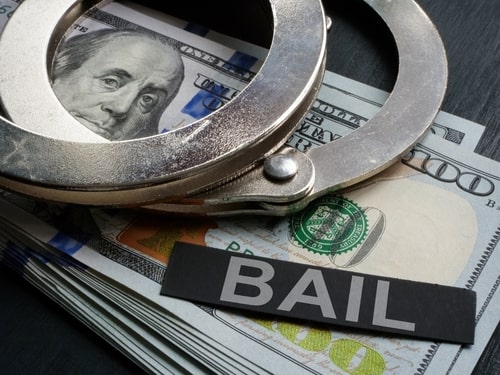 Understanding the bail system can be incredibly stressful and confusing for families when a loved one is in custody. A Texas bail bond professional aims to provide support and strategies to help families through this difficult process.
Understanding the bail system can be incredibly stressful and confusing for families when a loved one is in custody. A Texas bail bond professional aims to provide support and strategies to help families through this difficult process.
What is Bail, and How Does it Work?
The bail system allows for the temporary release of a defendant awaiting trial, given that bail is posted as a promise that the defendant will return for their court dates. Bail acts as collateral if the defendant fails to appear.
The bail amount set by the judge is based on factors like criminal history, flight risk, danger to the community, and more. Families often struggle to determine the bail amount to support their loved ones. This is where a bail bond can help.
How Bail Bonds Can Assist Families
Bail bond companies provide bail bonds to defendants and their families. A bail bond is a surety bond that allows the defendant to be released without paying the entire bail amount. Instead, the bail bond company charges a non-refundable fee, usually 10-15% of the bail amount.
Tips on How to Get a Bail Bond Process to Go Smoothly
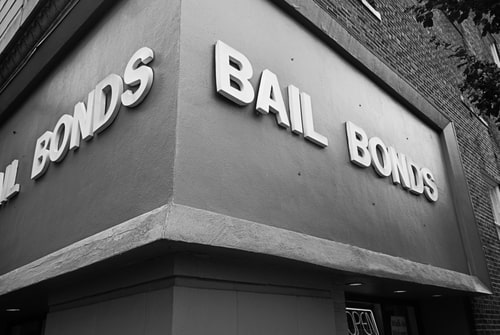 Finding yourself or a loved one in jail awaiting a court date is stressful enough without struggling through the bail bond process. Between grasping unfamiliar procedures, sourcing funds, and coordinating release, it can quickly become overwhelming. When freedom for your loved one depends on what step you take next, you need assurance that things will go smoothly. a Texas bail bondsman can help you with the process.
Finding yourself or a loved one in jail awaiting a court date is stressful enough without struggling through the bail bond process. Between grasping unfamiliar procedures, sourcing funds, and coordinating release, it can quickly become overwhelming. When freedom for your loved one depends on what step you take next, you need assurance that things will go smoothly. a Texas bail bondsman can help you with the process.
Pick the Perfect Bondsman
With so much riding on the bondsman’s efficiency and expertise, you need someone reliable. Search online reviews and local testimonials to find a professional bail agent who delivers responsiveness, transparency, and results. It is important that you find someone who has the experience that can help your loved one. This is not a detail you should overlook.
Come Prepared
Make sure you have all of the information ahead of time, like booking numbers, full legal names, and expected transfer jails when you are looking to achieve bail. Your bondsman needs all of the case details to ID the defendant quickly. Bring any paperwork that could help verify identity, charges faced, or flight risks relevant to bond eligibility. Thorough information allows for fast processing.
Types of Bail Bonds Used in Texas
 Texas allows four main types of bail bonds to help defendants get released from jail before their court date. A Texas bail bond agent, also known as a bondsmen, can provide these different bonds with the goal of ensuring defendants appear in court.
Texas allows four main types of bail bonds to help defendants get released from jail before their court date. A Texas bail bond agent, also known as a bondsmen, can provide these different bonds with the goal of ensuring defendants appear in court.
Cash Bonds
Cash bonds require defendants or their family and friends to provide the entire bail amount set by the court in cash. Once the case concludes, as long as the defendants attend all court dates, the cash goes back to whoever paid it. Cash bonds allow defendants to get released from custody immediately without needing a bail bond agent. However, paying the full bail amount upfront can present a financial challenge.
Surety Bonds
With surety bonds, bail bond companies provide a written guarantee to the court that they will pay the full bail amount if the defendant fails to appear. Defendants pay bail bond agents a nonrefundable fee, usually 10%-15% of the bail amount. If defendants miss court, bond agents are incentivized to locate and surrender them to avoid owing the court more money. Surety bonds provide the ability to get out of jail without putting up the entire bail amount themselves. These are the most common types of bonds in Texas.
Navigating the Bail System After an Assault Arrest in Texas
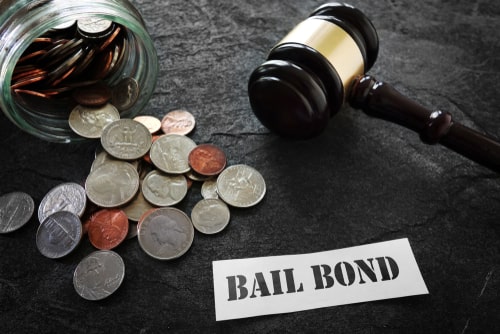 Being arrested for assault in Texas can be scary and confusing. Understanding your options for posting bail and bonding out of jail quickly is crucial. You deserve to know how a Texas bail bondsman can help get your loved one out of jail after an assault charge. A Texas bail bondsman can help you.
Being arrested for assault in Texas can be scary and confusing. Understanding your options for posting bail and bonding out of jail quickly is crucial. You deserve to know how a Texas bail bondsman can help get your loved one out of jail after an assault charge. A Texas bail bondsman can help you.
How Bail is Set for Assault in Texas
In Texas, bail is set during an initial appearance hearing within 48 hours of the arrest. The judge considers factors like criminal history, flight risk, danger to the community and victim, and evidence. Bail for assault ranges widely based on severity. Simple assault bail may be $500-$1,500, while aggravated assault involving a weapon or injury can be $5000-$15,000 or higher.
Using a Bail Bondsman in Texas
After bail is set, you can use a bail bondsman to post bond and get released from jail to await trial without paying the entire bail amount. Texas law allows bail bondsmen to charge a nonrefundable fee of up to 10% of the bail amount. This fee is paid to the bondsman, who posts a surety bond with the court for the entire bail amount.
Can Anyone Use a Bail Bondsman?
 If you or a loved one faces criminal charges in Texas requiring bail for release until trial, using a professional bail bondsman can provide an accessible option to get out of jail quickly. But who actually qualifies for bail bond services, and what restrictions exist? Gaining clarity is of crucial importance, and a Texas Bail Bondsman can help you and your situation.
If you or a loved one faces criminal charges in Texas requiring bail for release until trial, using a professional bail bondsman can provide an accessible option to get out of jail quickly. But who actually qualifies for bail bond services, and what restrictions exist? Gaining clarity is of crucial importance, and a Texas Bail Bondsman can help you and your situation.
Understanding the Role of a Texas Bail Bondsman
When judges set bail during an initial appearance, defendants must either pay the full bail amount themselves or use a licensed bail bondsman. Acting as a surety, a bail bondsman provides a bond to the court that guarantees the total bail will get paid if the defendant fails to properly appear in court as mandated.
This allows pretrial release from jail without needing to pay the entire bail amount upfront. The defendant, usually through a co-signer relative or friend, pays the bail bondsman a non-refundable fee instead. This is typically 10 of the full bail set. The bondsman then assumes legal and financial responsibility for covering the remaining bail balance if the defendant doesn’t show up.
How a Texas Bail Bondsman Can Help After an Arrest
 Being arrested and jailed in Texas is an exceptionally difficult situation for accused individuals and relatives. However, professional bail bondsmen have specialized expertise that provides critical assistance through the entire release process and beyond. Their comprehensive services simplify complex procedures while reducing jail time. This blog explains the in-depth ways a bail bonds agent assists at every phase:
Being arrested and jailed in Texas is an exceptionally difficult situation for accused individuals and relatives. However, professional bail bondsmen have specialized expertise that provides critical assistance through the entire release process and beyond. Their comprehensive services simplify complex procedures while reducing jail time. This blog explains the in-depth ways a bail bonds agent assists at every phase:
Expediting the Bond Approval Process
Following your arrest, bail bond agents quickly compile necessary paperwork, including the bail application, bond indemnity agreement, and any affidavits required by the court. The bondsman personally delivers the completed package to the court clerk for review. Their familiarity with clerks often allows faster approval than self-filing. Bondsmen also proactively fix any application issues that could cause denial or delays. Their efficiency gets bonds approved rapidly, so detention is minimized.
What to Expect When Posting Bail in Texas
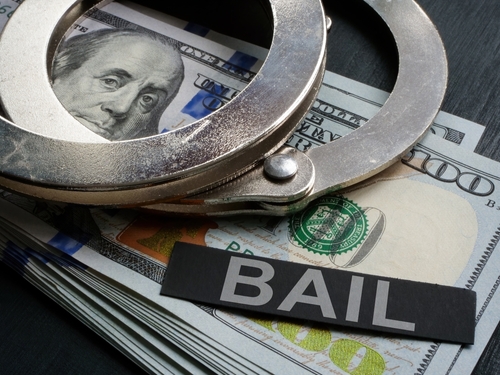 Getting arrested and having to secure a bond with a bondsman in Texas can be a complex process for both those arrested and their family and friends. Knowing what to expect with the bail bond process and timeline can help make this situation much easier to navigate.
Getting arrested and having to secure a bond with a bondsman in Texas can be a complex process for both those arrested and their family and friends. Knowing what to expect with the bail bond process and timeline can help make this situation much easier to navigate.
Booking and Bail Setting
After being arrested, you will first be booked and processed at the local jail facility. Your charges will be recorded, fingerprints and mugshots taken, and background checked. Within 48 hours, typically, you will go before a criminal magistrate judge who will consider the charges and set the bail amount required for pretrial release. Bail can range widely from $500-$50,000+ depending on the offense.
Top Mistakes To Avoid When Posting Bail in Texas
 Posting bail after being arrested in Texas involves complex legal processes and paperwork. Making missteps during the bail process can lead to forfeiting bail money, additional criminal charges, re-arrest, or delays in release from jail. Be aware of these common mistakes to avoid so that bail goes smoothly and how Texas bail bond agents can help.
Posting bail after being arrested in Texas involves complex legal processes and paperwork. Making missteps during the bail process can lead to forfeiting bail money, additional criminal charges, re-arrest, or delays in release from jail. Be aware of these common mistakes to avoid so that bail goes smoothly and how Texas bail bond agents can help.
Using an Unlicensed Bail Bondsman
In Texas, it is a criminal offense to act as a bail bondsman or post bail bonds without holding the required license from the Texas Department of Insurance. Always verify the bail bondsman you use is certified by searching the Texas Department of Insurance database before paying any bail fees. Using an unlicensed bondsman illegally puts you at serious risk of complications.
7 Things People May Not Know About Bail and Bail Bonds
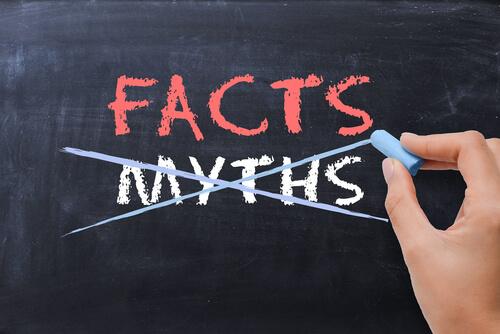 When a person is arrested by police, the legal issues they will need to address can seem scary and complicated. One of the key issues will be bail, which allows people to be released from jail during their criminal case. While most people have heard of bail and bail bonds, there are some important aspects of the system that many may not be familiar with. If you have been arrested, a bail agent can provide the help you need.
When a person is arrested by police, the legal issues they will need to address can seem scary and complicated. One of the key issues will be bail, which allows people to be released from jail during their criminal case. While most people have heard of bail and bail bonds, there are some important aspects of the system that many may not be familiar with. If you have been arrested, a bail agent can provide the help you need.
The Purpose of Bail
Bail serves as a guarantee that a person will appear in court for their scheduled hearings. By requiring them to provide money up-front, the court gives them an incentive to return to court rather than fleeing in hopes that they can avoid being convicted.
The Factors That Determine Bail Amounts
The amount a judge will require a person to pay may depend on factors such as:
Do I Have to Give Up the Title to My Home or Car to Get a Bail Bond?
 If you or a loved one have been arrested, getting released as quickly as possible is likely to be your top priority. Before you can be released, you will usually need to pay bail to the court. Fortunately, a bail bond will allow you to pay this amount, get out of jail, and get back to your life. However, you may be concerned that you will be required to put up certain assets as collateral in order to obtain a bail bond. By understanding how bail bonds work and your options for payment, you can determine the best way to proceed.
If you or a loved one have been arrested, getting released as quickly as possible is likely to be your top priority. Before you can be released, you will usually need to pay bail to the court. Fortunately, a bail bond will allow you to pay this amount, get out of jail, and get back to your life. However, you may be concerned that you will be required to put up certain assets as collateral in order to obtain a bail bond. By understanding how bail bonds work and your options for payment, you can determine the best way to proceed.
The Purpose of a Bail Bond
Before considering payment options, it is important to understand what bail is and why bail bonds may be necessary. When someone is arrested, they are taken into custody by police officers, and they will be held in jail until their court date unless they can post bail. Bail is meant to ensure that after a person is released from custody, they will come to all required court proceedings, including hearings or trials.










